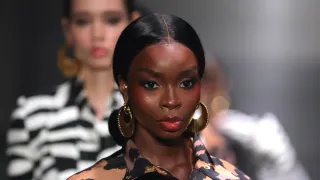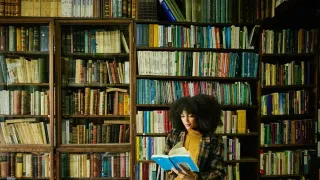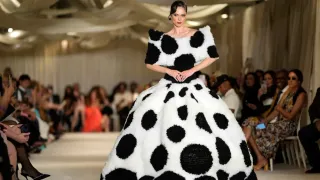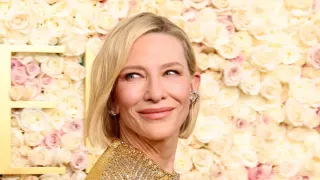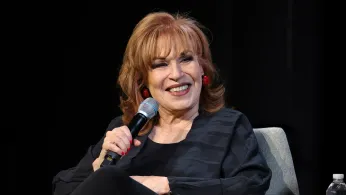
3 hours ago
Do "Three Kids" + "Two Baby Daddies" = "Baggage?" Joy Behar’s Remarks Ignite Debate Over “Bachelorette” Casting
READ TIME: 3 MIN.
The announcement that Taylor Frankie Paul, known for her role on Hulu’s “The Secret Lives of Mormon Wives” and as a member of the viral #MomTok collective, will lead season 22 of “The Bachelorette” has been met with both excitement and scrutiny. Among the most prominent voices responding to the casting was Joy Behar, longtime co-host of “The View,” who offered frank commentary on the decision during a recent episode, igniting a fresh national discussion on reality TV, family, and representation .
Taylor Frankie Paul rose to digital prominence as part of #MomTok, a circle of Utah-based Mormon mothers who found viral fame through TikTok. Her candid approach to parenting and relationships—and her openness about controversial topics such as “soft swinging”—made her both a lightning rod and a relatable figure for many viewers. Her journey, which included a high-profile divorce and a subsequent relationship that was chronicled on Hulu’s hit series, placed her at the center of conversations about modern family structures and the intersection of religious identity and personal authenticity .
ABC’s choice to cast Paul, who has three children with two former partners, as the new Bachelorette marks the first time a lead has been selected from outside the franchise’s traditional pool of contestants. The decision has been widely interpreted as an effort to boost ratings and appeal to a broader, more diverse audience—one that includes fans of Hulu’s reality programming and, by extension, viewers invested in new narratives around family, sexuality, and identity .
During the pre-taped episode, Behar did not shy away from Paul’s complicated history, joking, “She has three kids and two baby daddies, so will these bachelors line up to be baby daddy number three? Isn’t that the whole point of the show—to find your lover and get married? Okay, well, she’s got a little bit of baggage.” Her comments, though humorous, highlighted the ways in which traditional expectations around marriage and motherhood are evolving on mainstream platforms .
Behar’s remarks drew mixed reactions from her co-hosts. Alyssa Farah Griffin, for instance, acknowledged feeling “very conflicted” about the casting, noting the show’s break from its longstanding tradition of choosing leads from within its own ranks. Griffin added, “What I do love about her and why I think she’ll be excellent she’s super authentic and she’s extremely chaotic, and those are both great for reality TV” .
Sunny Hostin, another panelist, raised questions about how Paul’s religious background as a former Mormon might influence her interactions on the show, specifically referencing the popular “Fantasy Suites” segment. Behar and the panel responded by emphasizing that Paul is no longer a practicing Mormon, illustrating the diversity of experiences and identities represented within and beyond religious communities .
For many in the LGBTQ+ community, the casting of Taylor Frankie Paul—and the subsequent discourse—presents both opportunities and challenges. On one hand, Paul’s story resonates with those who have navigated nontraditional family structures, blended households, and public conversations about sexuality and faith. Behar’s acknowledgement of “baggage” can be seen as a nod to the complexities that many LGBTQ+ people and allies face in their own relationships, particularly when societal norms are shifting .
At the same time, there are concerns about whether reality TV is truly moving toward genuine inclusivity, or simply leveraging diverse stories for ratings. Past seasons of “The Bachelorette” and “The Bachelor” have been criticized for their lack of LGBTQ+ representation, with only incremental progress in featuring openly queer contestants or leads. The visibility of a single mother with a multifaceted background is a step toward broader representation, but advocates continue to call for more intentional inclusion of LGBTQ+ identities and stories in mainstream dating shows .
ABC’s decision to cast outside its typical pool reflects a broader trend in media, where authenticity and unpredictability are increasingly valued. The network’s synergy with Hulu, which aired “The Secret Lives of Mormon Wives,” was noted by both “The View” panelists and media commentators. As Sara Haines observed, the crossover appeal may be strategic, aimed at revitalizing a franchise that has struggled with declining ratings in recent years .
Industry analysts have also pointed out that while Paul’s journey is unique, it is emblematic of broader shifts in the stories being told on television. Single parents, individuals with complicated romantic histories, and those who have left organized religion are increasingly visible in media narratives. For LGBTQ+ viewers, these stories can affirm the validity of diverse paths to love and family, even as they highlight the work still needed to ensure full representation .
